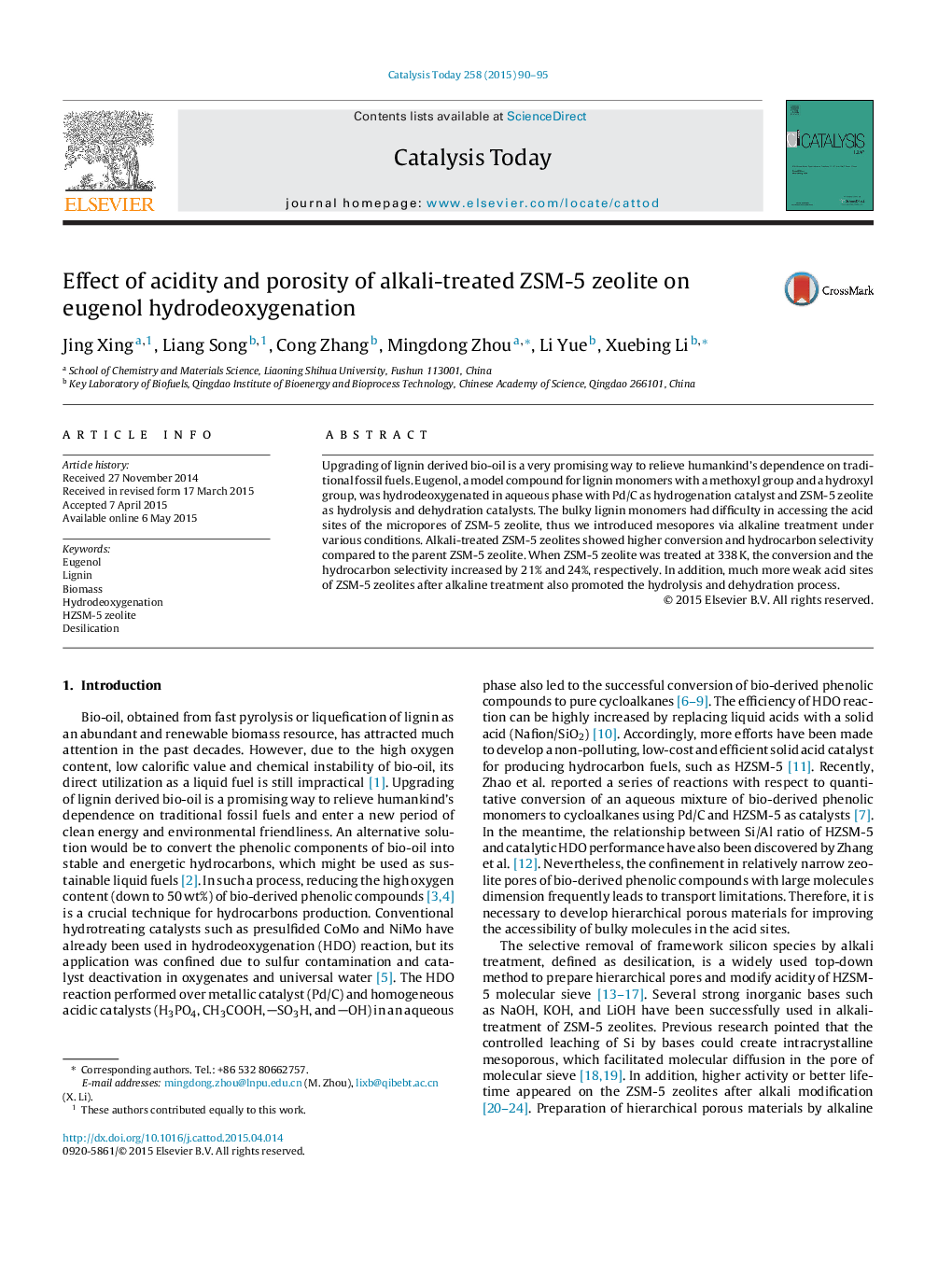| Article ID | Journal | Published Year | Pages | File Type |
|---|---|---|---|---|
| 53890 | Catalysis Today | 2015 | 6 Pages |
•Post-treatment has no effect on the intrinsic microporosity of their parent.•Hydrocarbon selectivity increases with the increasing of weak acidity.•Extra-mesopores created by desilication are beneficial to improve reaction activity.•Desilication of ZSM-5 is favorable for hydrolysis and dehydration.
Upgrading of lignin derived bio-oil is a very promising way to relieve humankind's dependence on traditional fossil fuels. Eugenol, a model compound for lignin monomers with a methoxyl group and a hydroxyl group, was hydrodeoxygenated in aqueous phase with Pd/C as hydrogenation catalyst and ZSM-5 zeolite as hydrolysis and dehydration catalysts. The bulky lignin monomers had difficulty in accessing the acid sites of the micropores of ZSM-5 zeolite, thus we introduced mesopores via alkaline treatment under various conditions. Alkali-treated ZSM-5 zeolites showed higher conversion and hydrocarbon selectivity compared to the parent ZSM-5 zeolite. When ZSM-5 zeolite was treated at 338 K, the conversion and the hydrocarbon selectivity increased by 21% and 24%, respectively. In addition, much more weak acid sites of ZSM-5 zeolites after alkaline treatment also promoted the hydrolysis and dehydration process.
Graphical abstractFigure optionsDownload full-size imageDownload high-quality image (96 K)Download as PowerPoint slide
